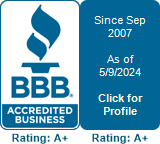
Few businesses plan how to handle the death of their employees, but it could happen at any time. If it does, you'll need to focus on how to help co-workers and supervisors or clients through this difficult time. But as an employer, you're also responsible for a few practical steps to keep your business running and help your employee's loved ones.
Here are a few steps to take when this tragic event occurs.
Process Final Payroll
Create a final paycheck for the employee's earned income - including all benefits and taxes - as you would if the person had been terminated. Most states require final paychecks to be paid out as soon as possible - often within as short a period as one to three days.
Be sure to include appropriate benefits the employee would have been due upon termination. If you're not sure what vacation, sick time, or other paid time off should be included in your state, work with a payroll service. Follow standard company policy if you've already established one and state requirements if you haven't.
Arrange for Work to Be Switched
You still have a company to run even when people are grieving a loss. As soon as possible, you should arrange for the deceased employee's email and voice messages to be transferred or forwarded to their supervisor or another employee. Have someone go through their desk and files to make sure that their work in progress is handed off to co-workers. If the person's computer files were protected by passwords or digital security, make sure you designate someone else to get into them immediately.
Prepare Personal Effects
The deceased employee's spouse or executor may come in to pick up the final paycheck. This is a good opportunity to have the person's personal belongings gathered up for the family members. It will save grieving persons a second trip during a difficult time. You should also include flowers or a personal gift from the company if not done already.
When arranging for someone's workstation to be cleared out, you may want to choose someone who wasn't especially close to the late employee. Keep in mind that other employees may be grieving this loss just as family members will be. Leave it up to the person's department, work friends, or supervisor to decide if they want to do this or if it would be too hard.
Request Company Property
It may seem a little callous, but you have to request company belongings back from the person's family. This often includes company keys, cell phones or tablets, computers, vehicles, and files that may be offsite. Wait until you've cleared out the person's work area and company vehicle before bothering the family with unnecessary requests, though.
If family members aren't able to provide all keys, mobile devices, or computers, change the locks or report the devices as lost in order to protect your company.
Notify Relevant Outsiders
If the employee had personal contact with clients, customers, or vendors outside the company, give them a call to explain the situation. Some business contacts may want to send their condolences, so prepare an address where flowers and cards can be sent - either to the office or to the family.
You or your bookkeeper will also need to notify any insurance companies, HSA providers, or other benefits that covered the person through work. You'll need copies of the death certificate for some transactions, so ask the family for several copies at their earliest convenience.
It can be difficult to know where to start when an employee dies. If you're feeling overwhelmed by this task, work with a professional accountant or bookkeeper to help with these practical steps. At Quality Bookkeeping Services , we can help you adjust and manage even these challenging times as an employer.













